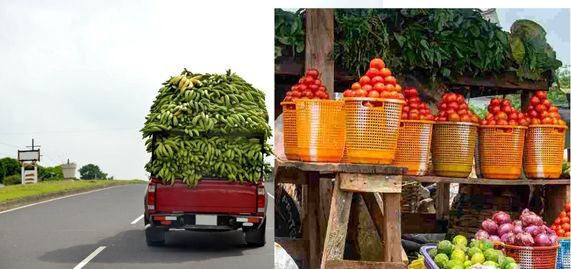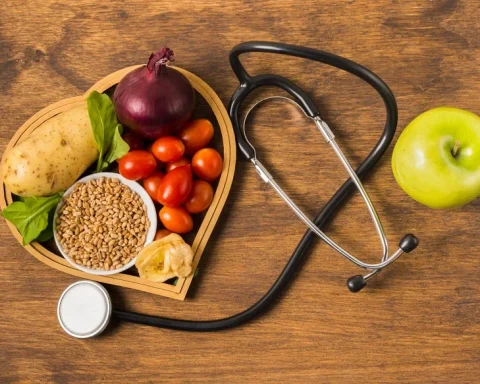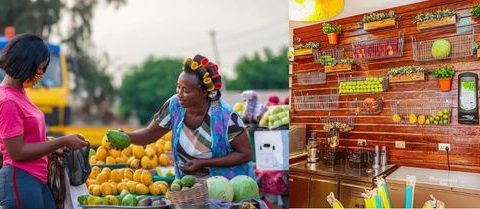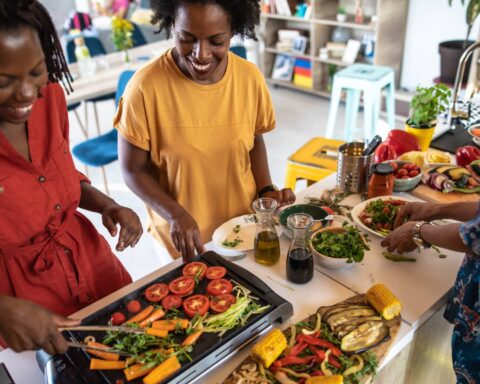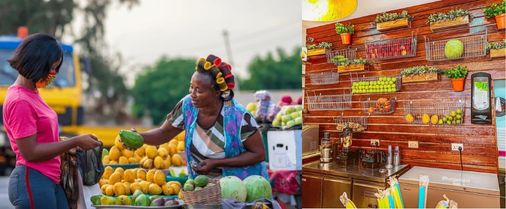In Nigeria’s fast-growing cities, the appetite for healthy food is rising. From plant-based diets in Lekki to organic shopping carts in Maitama, the demand for fresh, nutritious produce has been on an upward trend.
But while urban consumers are ready to pay for wellness, the journey from farm to supermarket shelf is far from smooth. Behind every bunch of organic spinach or crate of fresh tomatoes is a tangled web of logistics, market dynamics, and infrastructure gaps that often determine what gets eaten, what gets wasted, and what gets lost in transit.
Join our WhatsApp ChannelSo, what does it really take to get healthy food from the farm to the city shelf, and who’s profiting, who’s losing, and where are the business opportunities?
A Fragile Supply Chain
Nigeria’s agricultural output is significant, yet the system that connects farms to consumers is fragmented. For healthy food, especially perishables like leafy greens, fruits, and whole grains, the challenges are even steeper.
Farms located in Benue, Nasarawa, Ogun, Taraba, and Plateau among other states, produce a good portion of Nigeria’s fruits and vegetables. But these farms are often smallholder operations lacking cold storage, efficient harvesting tools, or real-time access to demand forecasts. Once harvested, produce must reach city centers quickly, within 24 to 72 hours, before spoilage sets in.
Without a cold chain or organised transport network, up to 40% of fruits and vegetables perish before reaching retail points. This loss inflates prices and discourages investment in growing nutrient-rich crops. According to ColdHubs, about 45% of food spoils mainly due to lack of cold storage.
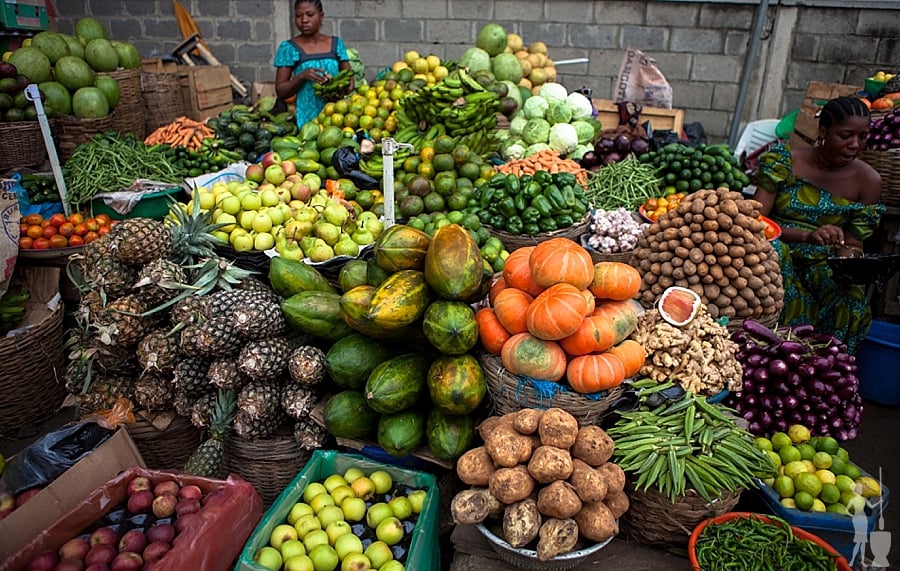
Transport, Bottlenecks, and Broken Links
Logistics remains the most underestimated yet most critical part of Nigeria’s food economy. The current system relies heavily on manual processes and middlemen who control the bulk of food movement.
Roads are poor, especially in rural areas, making it difficult to convey agricultural products to urban centres or markets where they are in high demand on time.
READ ALSO: HOMEF Calls For Support Of Farmers To Produce Healthy Local Foods
Refrigerated trucks are scarce, expensive to maintain, and usually reserved for premium exports or multinational chains.
Interstate logistics taxes and checkpoints delay movement and increase final prices.
Middlemen monopolise pricing, often squeezing farmers and inflating costs for consumers.
By the time food reaches Lagos or Abuja supermarkets, prices have tripled. A cabbage harvested in Jos for ₦300 might retail at ₦1,500, while avocado sourced in Edo State might sell in VI for ₦2,200, not due to scarcity, but logistical inefficiencies.
Urban Retailers Feel the Pinch
Retailers at the final link of the chain must make difficult choices: stock only what can survive long shelf lives (processed or frozen foods), or accept high spoilage losses on fresh goods. As a result, many supermarkets limit their fresh produce sections to a few high-demand items, relying on packaged goods to fill the “healthy” shelves.
READ ALSO: High Food, Drug Costs, Push Nigerians Into Healthcare Dilemma
Some upscale grocery stores have begun sourcing directly from farmer cooperatives or using third-party aggregators to cut out the middlemen. This model shows promise, but it’s still in early stages, hindered by lack of transparency and real-time inventory systems.
Digital Startups Enter the Scene
In the last five years, several agritech and food logistics startups have stepped in to bridge the gap. Companies like Releaf, ThriveAgric, and ColdHubs are addressing supply chain inefficiencies with technology.
Releaf focuses on digitising raw material sourcing directly from farmers.
ColdHubs offers solar-powered cold storage units at farm gates to reduce spoilage.
Last-mile logistics platforms like Pricepally and Foodlocker allow customers in cities to pre-order healthy produce directly from farm networks.
These solutions show strong potential; if scaled properly, they can reduce waste, cut costs, and bring fresher food to urban shelves. However, funding, infrastructure, and farmer adoption remain key hurdles.
Business Opportunities in the Gap
Amid the inefficiencies, opportunities abound for investors and entrepreneurs:
- Cold Chain Logistics: Refrigerated trucks, portable storage units, and mobile cold rooms offer huge potential. With produce wastage so high, any innovation that preserves shelf life can be monetized.
- Aggregator Platforms: There is room for platforms that pull produce from multiple small farms and guarantee delivery to city stores or consumers.
- Smart Warehousing: Tech-enabled distribution centers close to urban markets can help coordinate supply, cut delivery time, and reduce costs.
- Direct-to-Consumer Healthy Boxes: Subscription boxes that deliver fresh produce or curated healthy meal kits are a rising model in Lagos and Abuja.
- Export Quality at Home: Many Nigerian farms grow premium organic produce for export. By creating a domestic market for these goods, businesses can offer high-quality food locally at better prices.
Policy and Public-Private Support
Without support from government and policymakers, however, the logistics puzzle will remain unsolved. Stakeholders continue to call for:
Better rural road infrastructure
Incentives for cold chain investments
Regulation and certification of food transport systems
Farmer education on post-harvest handling
Partnerships between states and logistics providers
Some state governments have begun investing in food hubs, but national coordination is needed to standardize practices and scale solutions.
Conclusion
Healthy eating begins on the farm, but whether it reaches the urban shelf depends on a chain of decisions, conditions, and innovations. For Nigeria to truly achieve food security and wellness, logistics must move from the background to the spotlight.
As cities get hungrier for clean eating, the businesses that master the farm-to-shelf journey won’t just make profits, they’ll help feed a healthier nation.
Amanze Chinonye is a Staff Correspondent at Prime Business Africa, a rising star in the literary world, weaving captivating stories that transport readers to the vibrant landscapes of Nigeria and the rest of Africa. With a unique voice that blends with the newspaper's tradition and style, Chinonye's writing is a masterful exploration of the human condition, delving into themes of identity, culture, and social justice. Through her words, Chinonye paints vivid portraits of everyday African life, from the bustling markets of Nigeria's Lagos to the quiet villages of South Africa's countryside . With a keen eye for detail and a deep understanding of the complexities of Nigerian society, Chinonye's writing is both a testament to the country's rich cultural heritage and a powerful call to action for a brighter future. As a writer, Chinonye is a true storyteller, using her dexterity to educate, inspire, and uplift readers around the world.


